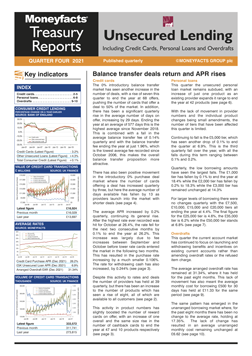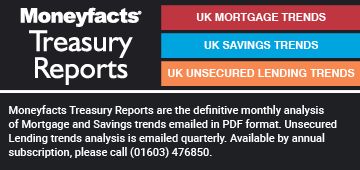Rachel Springall, Finance Expert at Moneyfacts, said:
“The credit card market has had to adapt to economic uncertainties and, as we mark two years on since the first UK lockdown, the latest movements on balance transfer cards is welcome news for consumers looking to move their debts interest-free. The average term on an introductory 0% balance transfer card is at its highest in almost four years, surpassing 600 days for the first time since May 2018. The growth in choice is also encouraging since we saw the number of deals fall to a record low during July-August 2020, just a few months on from the initiation of the first UK lockdown. Those looking to move their debts will also see the average introductory balance transfer fee has fallen to 1.95%, which is 0.35% less than in March 2020.
“One provider to make a notable change to its balance transfer offer last month was Sainsbury’s Bank, which increased its balance transfer card by one month to 24. Santander also increased its own interest-free offer to 21 months, up from 18 months on its fee-free deal. One of the most prominent offers to worsen was the market-leading 35-month deal from Virgin Money, which dropped down to 32 months. However, competitive deals remain in play despite some shifts to the market-leaders, with MBNA offering the longest deal today at 33 months, four months more than the longest deal a year ago from Sainsbury’s Bank at 29 months.
“The average UK credit card debt per household in December 2021, according to The Money Charity was £2,112, a balance that could be cleared in one year if £180 was paid off each month without interest being applied. However, if consumers stick to the minimum repayment, even a debt of this size could hang overhead for many years. As the cost of living rises, consumers may be tempted to reduce their credit card repayments and, while this is a nice flexible feature to have in times of need, it’s imperative borrowers are mindful of their debts, any interest-free deal that may be coming to an end, and switch if they want to avoid incurring interest.
“As has been the case for many years, the best 0% balance transfer card for someone may not be the one with longest interest-free offer, as there are credit cards out there with low balance transfer fees or even charging no fee. Not every borrower will be eligible for a headline grabbing deal, but it’s always wise for consumers to check their credit score before they apply, such as with Experian. If customers are struggling to keep up with their repayments amid the rising cost of living, they would do well to seek help from a debt advice charity.”
Rachel Springall, Finance Expert at Moneyfacts, said:
“The credit card market has had to adapt to economic uncertainties and, as we mark two years on since the first UK lockdown, the latest movements on balance transfer cards is welcome news for consumers looking to move their debts interest-free. The average term on an introductory 0% balance transfer card is at its highest in almost four years, surpassing 600 days for the first time since May 2018. The growth in choice is also encouraging since we saw the number of deals fall to a record low during July-August 2020, just a few months on from the initiation of the first UK lockdown. Those looking to move their debts will also see the average introductory balance transfer fee has fallen to 1.95%, which is 0.35% less than in March 2020.
“One provider to make a notable change to its balance transfer offer last month was Sainsbury’s Bank, which increased its balance transfer card by one month to 24. Santander also increased its own interest-free offer to 21 months, up from 18 months on its fee-free deal. One of the most prominent offers to worsen was the market-leading 35-month deal from Virgin Money, which dropped down to 32 months. However, competitive deals remain in play despite some shifts to the market-leaders, with MBNA offering the longest deal today at 33 months, four months more than the longest deal a year ago from Sainsbury’s Bank at 29 months.
“The average UK credit card debt per household in December 2021, according to The Money Charity was £2,112, a balance that could be cleared in one year if £180 was paid off each month without interest being applied. However, if consumers stick to the minimum repayment, even a debt of this size could hang overhead for many years. As the cost of living rises, consumers may be tempted to reduce their credit card repayments and, while this is a nice flexible feature to have in times of need, it’s imperative borrowers are mindful of their debts, any interest-free deal that may be coming to an end, and switch if they want to avoid incurring interest.
“As has been the case for many years, the best 0% balance transfer card for someone may not be the one with longest interest-free offer, as there are credit cards out there with low balance transfer fees or even charging no fee. Not every borrower will be eligible for a headline grabbing deal, but it’s always wise for consumers to check their credit score before they apply, such as with Experian. If customers are struggling to keep up with their repayments amid the rising cost of living, they would do well to seek help from a debt advice charity.”











